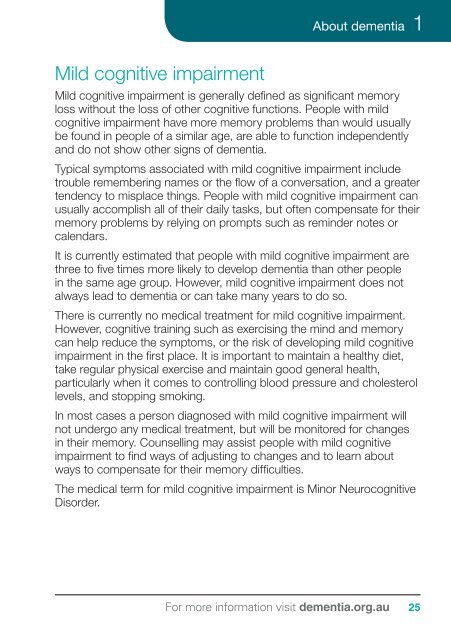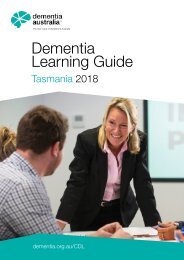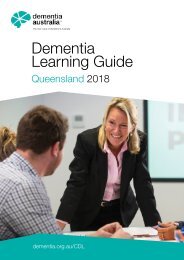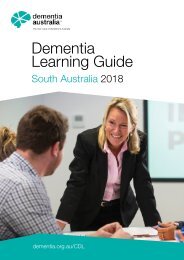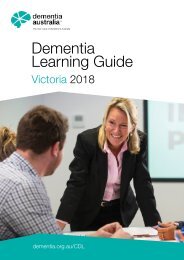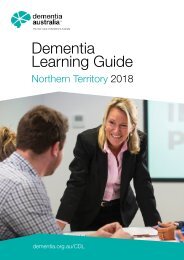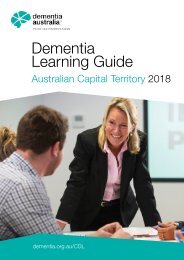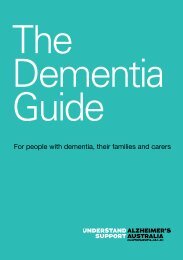Dementia Australia | The Dementia Guide
The Guide will also be used by the family and friends of someone with dementia, as it will contain information for anyone taking on a caring role. It will help people to understand more about dementia and the emotional impact of a diagnosis, the available drug treatments, and support and services that are available. It will include information about living well with dementia and about making plans for the future.
The Guide will also be used by the family and friends of someone with dementia, as it will contain information for anyone taking on a caring role. It will help people to understand more about dementia and the emotional impact of a diagnosis, the available drug treatments, and support and services that are available. It will include information about living well with dementia and about making plans for the future.
Create successful ePaper yourself
Turn your PDF publications into a flip-book with our unique Google optimized e-Paper software.
About dementia 1<br />
Mild cognitive impairment<br />
Mild cognitive impairment is generally defined as significant memory<br />
loss without the loss of other cognitive functions. People with mild<br />
cognitive impairment have more memory problems than would usually<br />
be found in people of a similar age, are able to function independently<br />
and do not show other signs of dementia.<br />
Typical symptoms associated with mild cognitive impairment include<br />
trouble remembering names or the flow of a conversation, and a greater<br />
tendency to misplace things. People with mild cognitive impairment can<br />
usually accomplish all of their daily tasks, but often compensate for their<br />
memory problems by relying on prompts such as reminder notes or<br />
calendars.<br />
It is currently estimated that people with mild cognitive impairment are<br />
three to five times more likely to develop dementia than other people<br />
in the same age group. However, mild cognitive impairment does not<br />
always lead to dementia or can take many years to do so.<br />
<strong>The</strong>re is currently no medical treatment for mild cognitive impairment.<br />
However, cognitive training such as exercising the mind and memory<br />
can help reduce the symptoms, or the risk of developing mild cognitive<br />
impairment in the first place. It is important to maintain a healthy diet,<br />
take regular physical exercise and maintain good general health,<br />
particularly when it comes to controlling blood pressure and cholesterol<br />
levels, and stopping smoking.<br />
In most cases a person diagnosed with mild cognitive impairment will<br />
not undergo any medical treatment, but will be monitored for changes<br />
in their memory. Counselling may assist people with mild cognitive<br />
impairment to find ways of adjusting to changes and to learn about<br />
ways to compensate for their memory difficulties.<br />
<strong>The</strong> medical term for mild cognitive impairment is Minor Neurocognitive<br />
Disorder.<br />
For more information visit dementia.org.au 25


